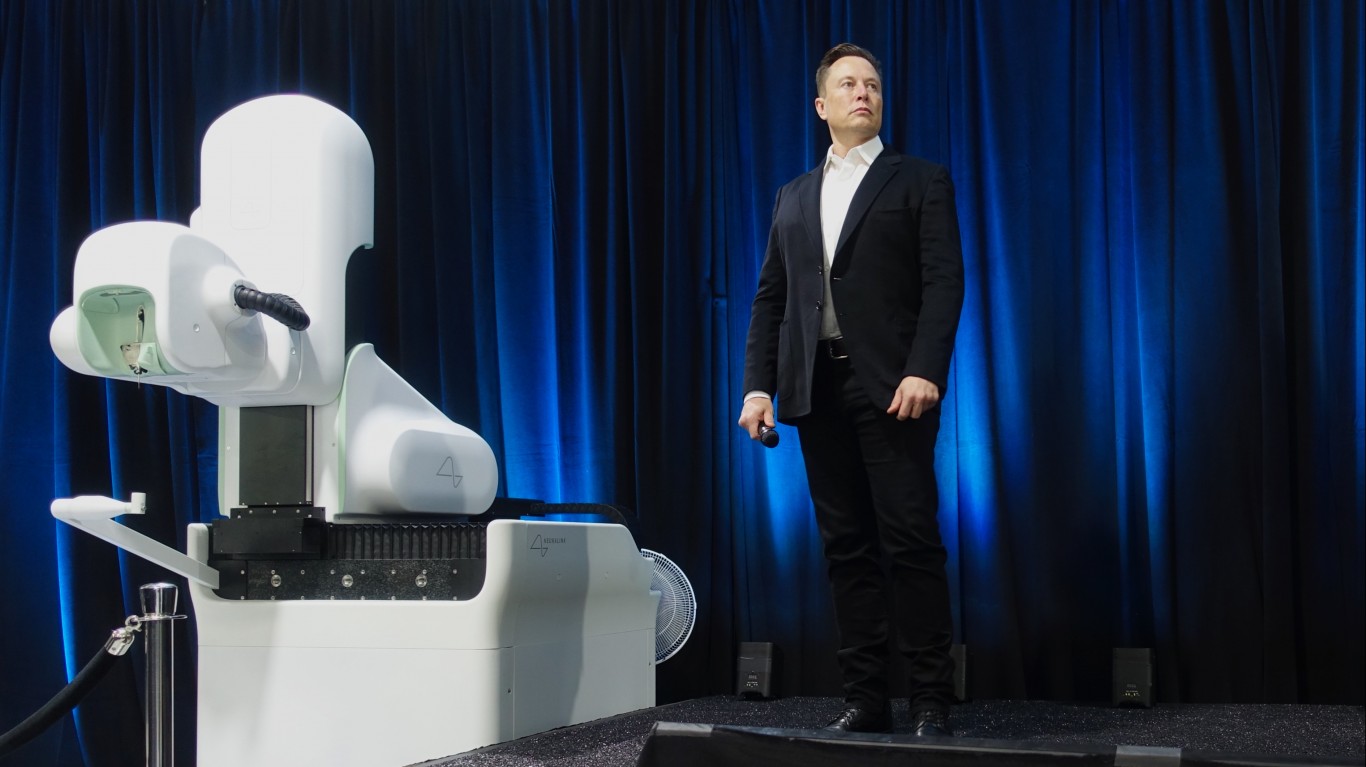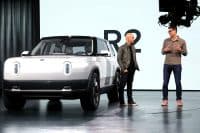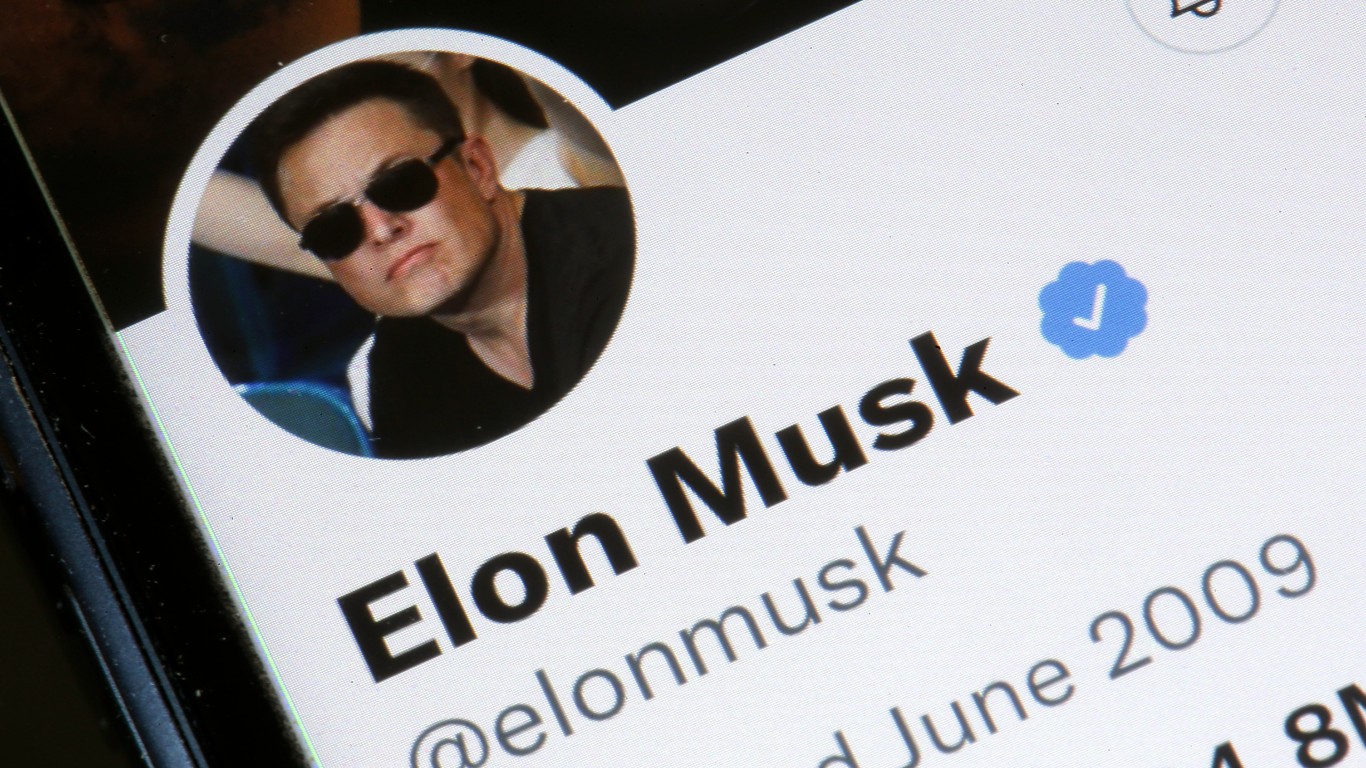
Elon Musk may be one of the world’s most infamous online trolls who has a penchant for sharing juvenile jokes – most recently claiming he would give Wikipedia $1 billion to change its name to “Dickipedia” – but even his most ardent critics can’t deny that his aggressive entrepreneurship style has made him the world’s wealthiest centibillionaire. (Here are Elon Musk’s top five memorable moments.)
After arriving to Silicon Valley in 1995, the South Africa-born Stanford University dropout co-founded an early online business directory called Global Link Information Network (renamed Zip2 shortly after) with his brother Kimbal and Lebanese-Canadian executive and angel investor Gregory Kouri, who died in 2012.
Compaq Computer bought Zip2 in 1999 for more than $300 million, three years after Zip2’s Board removed Musk, who was 24 years old at the time, from his role as company CEO and replaced him with Richard Sorkin, a more experienced executive. Zip2 was folded into AltaVista, Compaq’s search engine, which was shut down by Yahoo! in 2013.
Musk and Kimball reportedly walked away from the Zip2 sale to Compaq with a combined $37 million. Elon used some of his proceeds to co-found X.com in 1999 with Harris Fricker, Christopher Payne, and Ed Ho.
X.com was an early online bank attempting to offer an easy way to transfer funds. In 2000, X.com merged with Confinity, a software maker co-founded by German-American entrepreneur Peter Thiel, to create the secure online payment platform PayPal. Elon was once again removed as CEO, this time in a “coup” orchestrated by Thiel, reportedly because of Elon’s management style.
But Elon kept his equity stake in PayPal, which netted him his second and much larger windfall of $180 million after eBay purchased PayPal for $1.5 billion in 2002. Musk used this money to establish SpaceX and grow Tesla into the world’s most valuable car company. (Check out why Tesla is so valuable.)
Though the breakup with PayPal was caustic, Elon later said “it was good I got couped.” He avoided burning bridges with PayPal executives.
Skip forward to today.
These are the six companies the 52-year-old entrepreneur owns. Company details were aggregated from news sources and company websites. Valuations were provided by Madison Trust Company based on reported estimates from June to August of this year and April 2022 for The Boring Company. Five of these companies are listed by the date they were founded. Twitter, which was established in 2006 and was purchased by Musk in 2022.
1. Space Exploration Technologies (SpaceX)
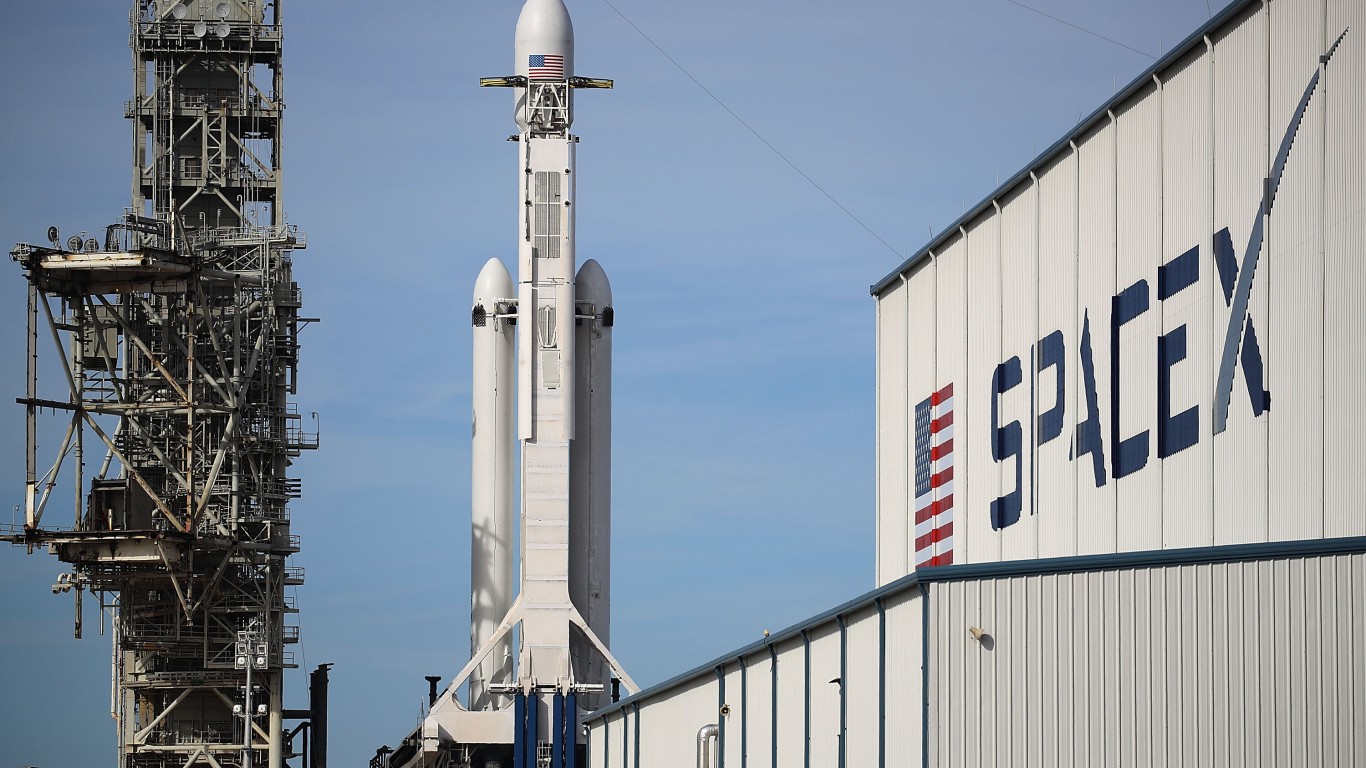
- Business: Space transportation
- Valuation: $150 billion
- Year established: 2002
SpaceX dazzled the world in 2016 when it successfully landed its Falcon 9 booster rocket onto an autonomous landing platform in the Atlantic Ocean. The following year, that booster was used again from Florida’s Kennedy Space Center, marking a milestone in aerospace history for proving these costly rockets could be recovered and reused.
Though Musk has said SpaceX’s goal is to deliver colonizers to Mars, the company’s current activities are closer to home. It delivers payloads to near-earth orbit, including launches for the U.S. Space Force; shuttling astronauts to and from the International Space Station; and operating Starlink, a global provider of satellite-based high-speed internet service.
2. Tesla
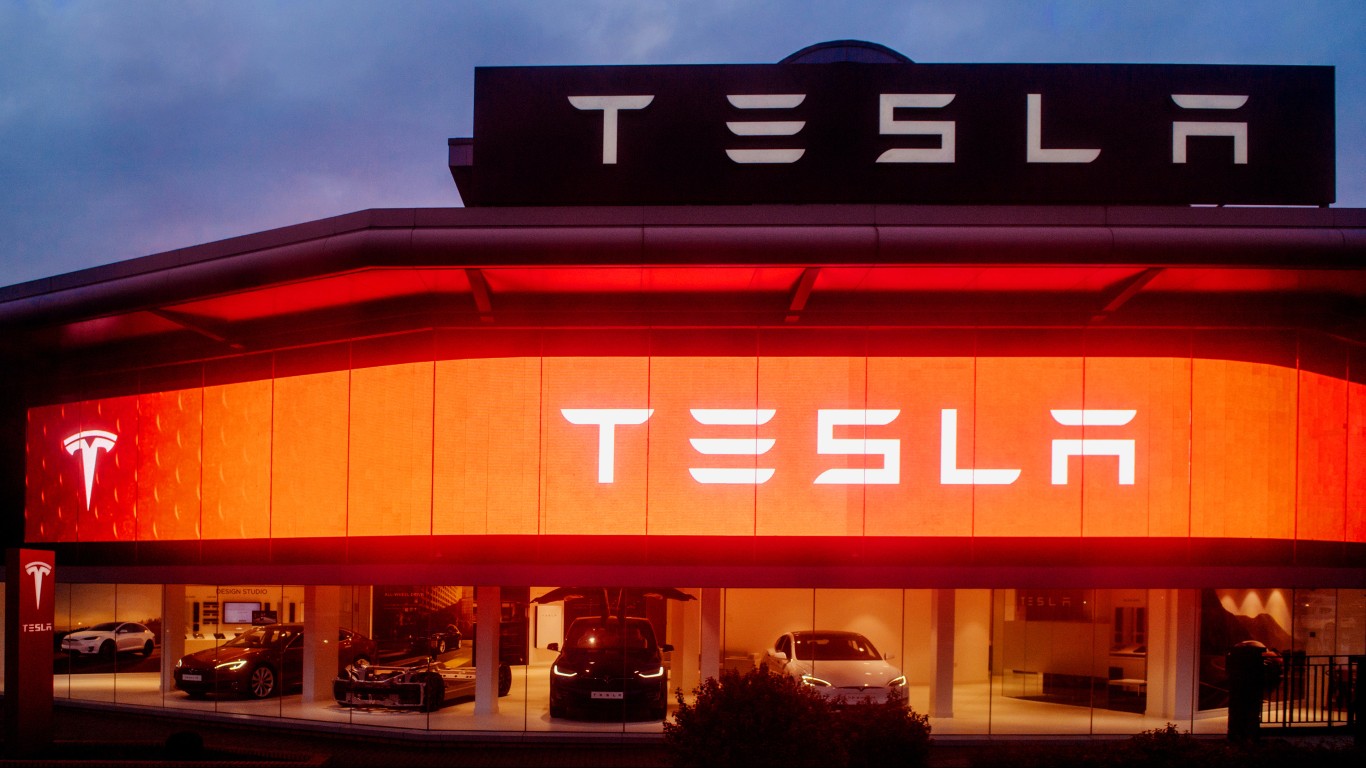
- Business: Electric cars and clean energy
- Valuation: $770 billion
- Year established: 2003
Engineers and tech entrepreneurs Martin Eberhard and Marc Tarpenning founded Tesla Motors, but Musk saw the company as an opportunity to fast-track himself into a lead position in the race to mass-produce electric cars. Musk became Tesla’s CEO in 2008, nearly five years after taking a majority stake in the company, which went public in June 2010 at $17 per share. The company’s stock price peaked at more than $400 per share in November 2021, but it has since fallen by nearly half.
In a move that riled investors at the time, Tesla (NASDAQ: TSLA) acquired SolarCity in 2016 for $2.6 billion. The struggling solar energy company founded in 2006 by Musk’s cousins Peter and Lyndon Rive, and partially funded by Musk, is now Tesla’s clean-energy division. Tesla, the world’s most valuable carmaker, is Musk’s only publicly traded company and the source of most of his wealth.
3. Neuralink
- Business: Neurotechnology
- Valuation: $5 billion
- Year established: 2016
The neurotechnology company wants to create a web of implantable electrodes on the brain to fuse humans with artificial intelligence. If proven, the technology would have many applications, notably to treat neurological conditions like paralysis and dementia. Earlier this year, the Food and Drug Administration approved clinical studies of the technology on humans. But the company has reportedly struggled with defections, with some former employees lambasting Musk’s management style.
Former employees accused Neuralink of committing egregious animal abuse in its testing practices, including rushed and botched surgeries. Reuters reported the company killed about 1,500 animals from 2018 to 2022, including at least 280 sheep, pigs, and monkeys. Neuralink denies accusations of animal cruelty and says it’s operating within the legal boundaries of animal testing.
4. The Boring Company
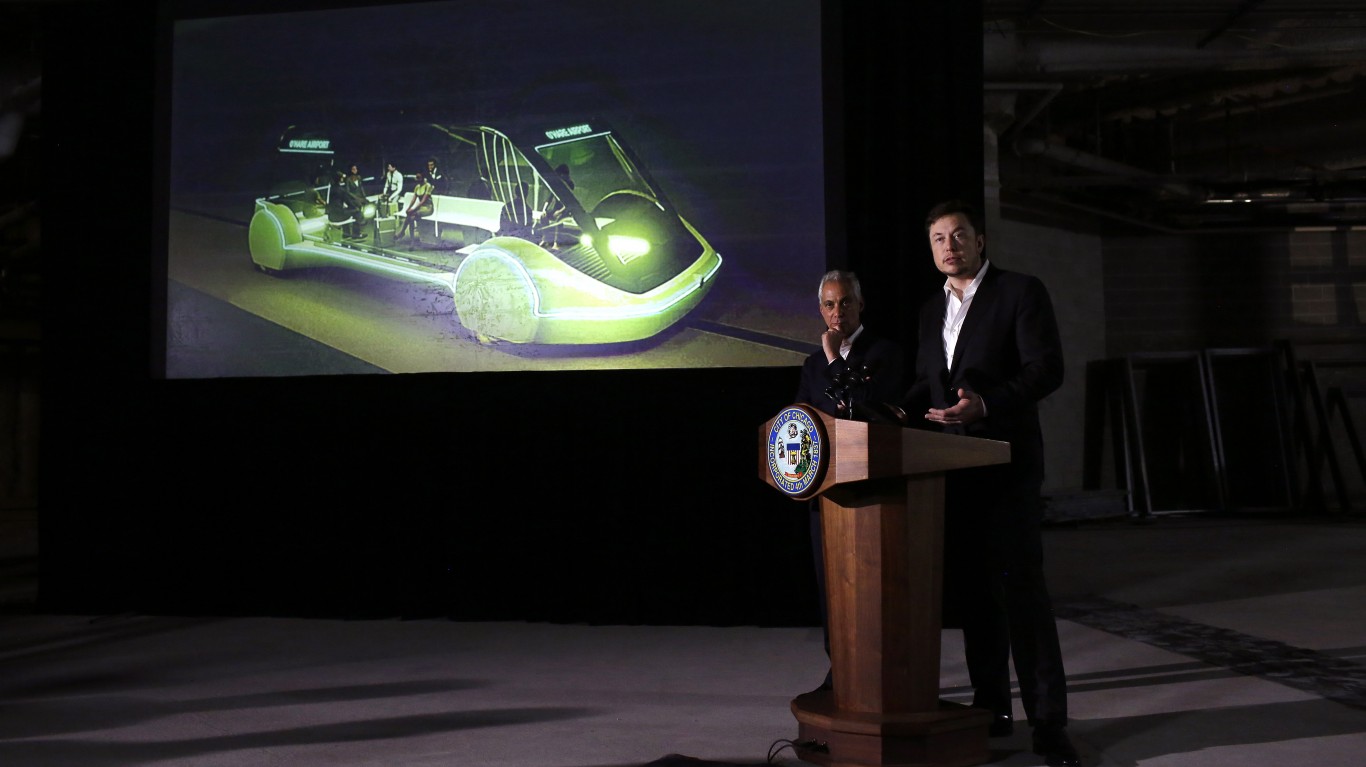
- Business: Tunnel digging
- Valuation: $5.7 billion
- Year established: 2016
The company promotes digging tunnels faster, safer, and more efficient and environmentally friendly. Musk has envisioned using these smaller boring machines to build a massive network of underground tunnels as a solution to traffic problems. Critics have argued mass public transportation moves people around far more efficiently, and that these tunnels would cause surface gridlock at entrances and exits.
So far, the company has only one completed project, the $53 million, 1.7-mile, five-station Las Vegas Convention Center Loop that uses Tesla’s Model 3 electric cars. But the company is seeking to expand to 81 stations and 68 miles. Another possible use for the company’s boring technology: digging tunnels to help protect future astronauts from cosmic radiation. Could The Boring Company be part of Musk’s larger vision of long-term stays for astronauts on the moon and Mars?
5. X (formerly Twitter)
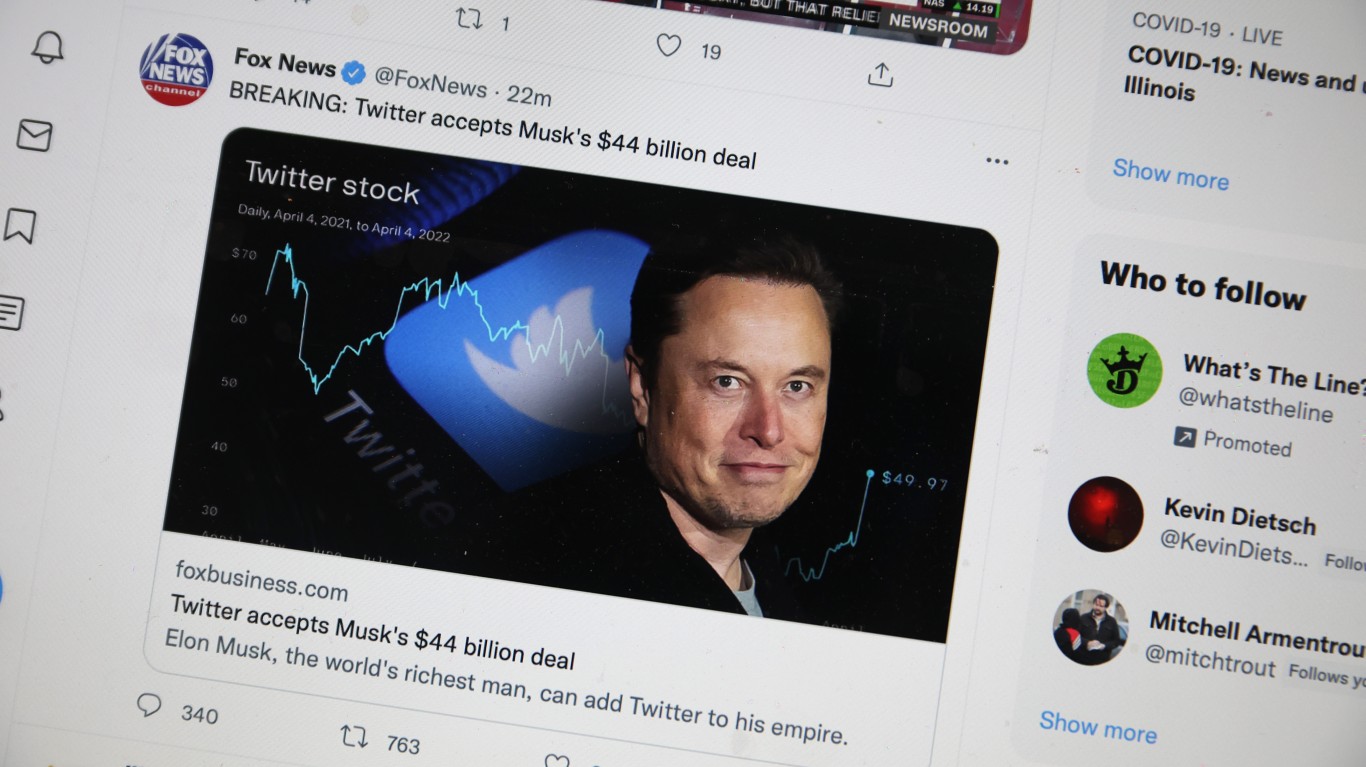
- Business: Social media
- Valuation: $15 billion
- Year established: 2006 (purchased by Musk in 2022)
Musk’s most controversial company was founded by Jack Dorsey, Noah Glass, Biz Stone, and Evan Williams in 2006. After becoming Twitter’s largest shareholder, Musk offered $44 billion to buy the micro-blogging platform last year. He then backed out of the deal, claiming the company wasn’t doing enough to crack down on spambot accounts. Musk reversed course again after Twitter sued him for breaching the agreement and closed the purchase in October 2022 borrowing heavily to fund the deal that took Twitter private. As new owner, he quickly fired most of Twitter’s workforce, gutted the content-moderation team, and deleted Twitter’s globally recognizable name and blue bird logo.
Today, X is a mess. Advertisers and subscribers are reportedly fleeing the platform. Bot activity, including porn bots, continues. Musk implemented a system that allows anyone paying $8 a month to be featured near the top of post replies, a system that can amplify toxic and confrontational comments from people paying to be more visible on the platform.
Musk said in September the company could now be worth less than $4 billion, though outside valuation estimates are much higher, but lower than the $44 billion he paid for the platform. Meanwhile, CEO Linda Yaccarino has the monumental task of juggling Musk’s seemingly flippant whims with common-sense business development. Can X entice advertisers to return to a platform rife with misleading information, propaganda, and toxic chatter?
6. xAI
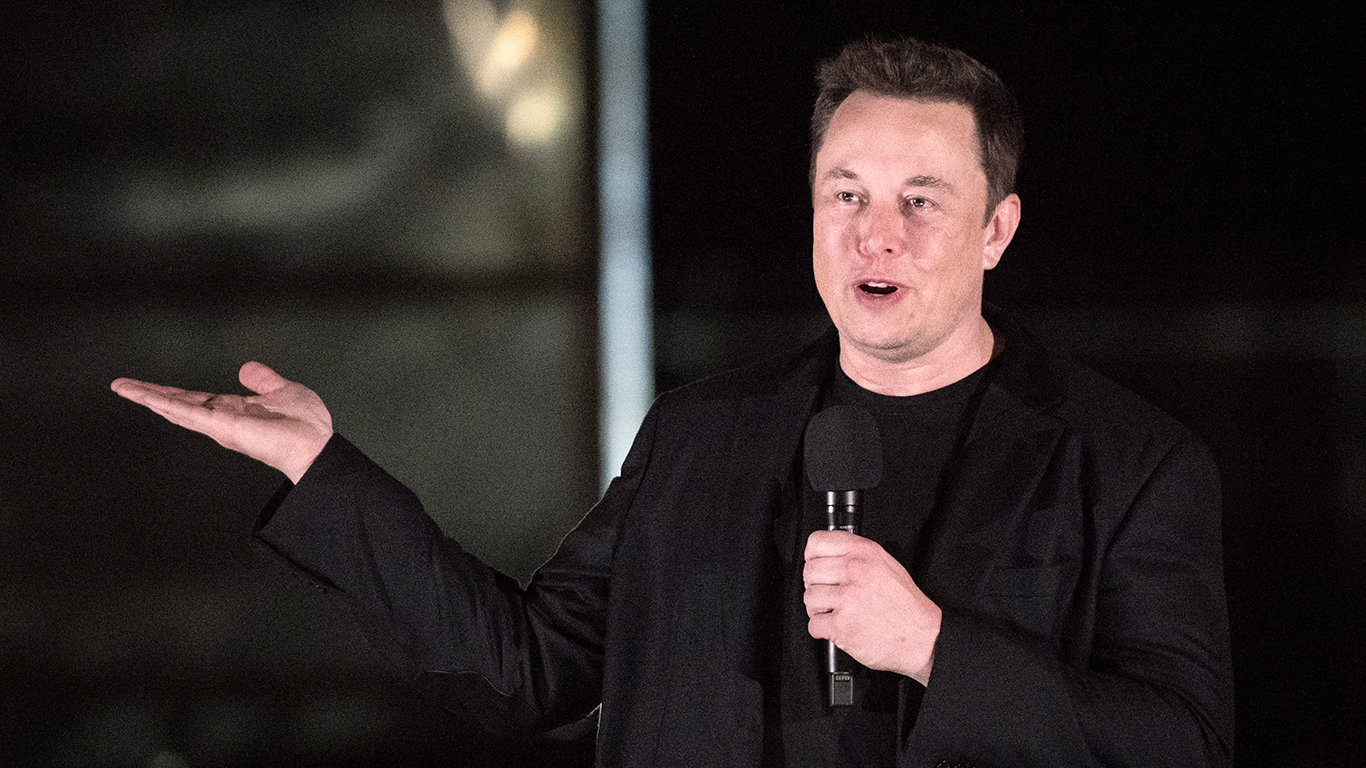
- Business: Explainable artificial intelligence
- Valuation: Unknown
- Year established: 2023
The company is named after term XAI, shorthand for “explainable artificial intelligence,” an AI system that is more transparent than the current method of machine learning. In other words, AI that builds trust with users instead of using the current “black box” of machine-learning algorithms.
This would give people a way to retrace how an algorithm came to its result. If you’ve ever used large-language-model (LLM) chatbots like ChatGPT you’ve likely noticed factual errors, known as “hallucinations,” and wonder where the algorithm got its information and how it came to incorrect or controversial conclusions.
In 2018, Musk resigned from the board of OpenAI, the company behind ChatGPT, co-founded by Sam Altman, citing a conflict of interest with Tesla, which is developing AI for autonomous driving. But there was reportedly more to this separation.
According to the news outlet Semafor, citing people familiar with the matter, Musk wanted to take control of OpenAI because he believed it was falling behind Google’s Bard LLM chatbot. In March, Musk founded xAI with a goal of understanding “the true nature of the universe,” according to a mission statement on the company’s website.
Are You Still Paying With a Debit Card?
The average American spends $17,274 on debit cards a year, and it’s a HUGE mistake. First, debit cards don’t have the same fraud protections as credit cards. Once your money is gone, it’s gone. But more importantly you can actually get something back from this spending every time you swipe.
Issuers are handing out wild bonuses right now. With some you can earn up to 5% back on every purchase. That’s like getting a 5% discount on everything you buy!
Our top pick is kind of hard to imagine. Not only does it pay up to 5% back, it also includes a $200 cash back reward in the first six months, a 0% intro APR, and…. $0 annual fee. It’s quite literally free money for any one that uses a card regularly. Click here to learn more!
Flywheel Publishing has partnered with CardRatings to provide coverage of credit card products. Flywheel Publishing and CardRatings may receive a commission from card issuers.
Thank you for reading! Have some feedback for us?
Contact the 24/7 Wall St. editorial team.

